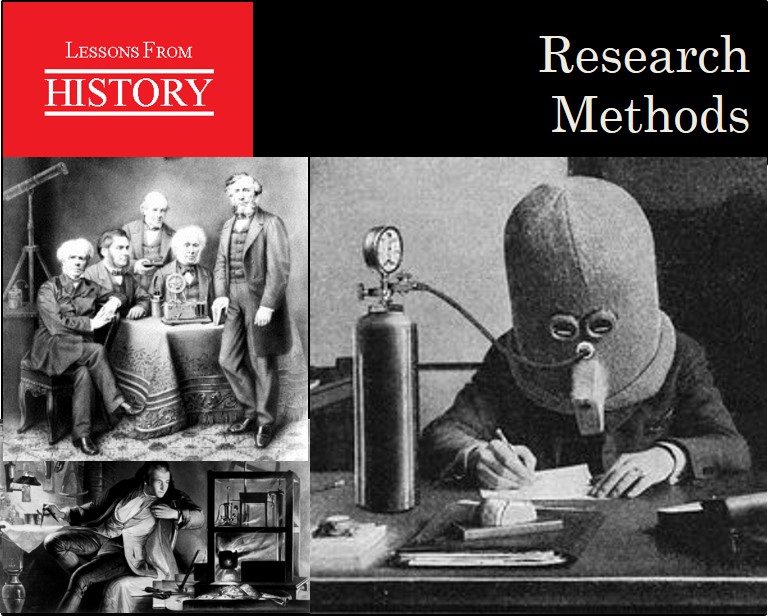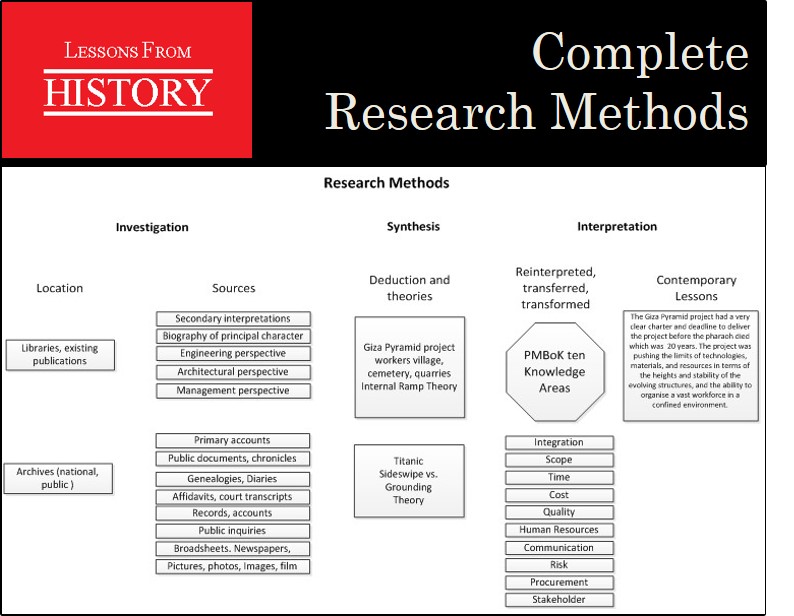LFH Overview
Extrapolating best practices
 LFH is modeled on lessons learned from the past. The LFH approach used across LFH products and services consists of Investigation, Synthesis and Interpretation. The research methods used in the LFH approach investigate (collect the data), synthesise the evidence, and interpret it where lessons are taken from historical projects and then transformed for use in contemporary business and projects. All the research methods listed below are qualitative and are guided by historiography.
LFH is modeled on lessons learned from the past. The LFH approach used across LFH products and services consists of Investigation, Synthesis and Interpretation. The research methods used in the LFH approach investigate (collect the data), synthesise the evidence, and interpret it where lessons are taken from historical projects and then transformed for use in contemporary business and projects. All the research methods listed below are qualitative and are guided by historiography.
The three steps we follow are:
- Investigation, including data collection methods like literature reviews, interviews and oral histories, field research and on-site visits.
- Synthesis, including content analysis, constant comparison method, thematic analysis, and analysis of narratives.
- Interpretation, including the theoretical framework, cross checking and testing for coherence, extraction, transfer and transformation of historical lessons into contemporary lessons.
Secchi et al. (1999) defined lessons learned as:
“A lesson learned is a knowledge or understanding gained by experience. The experience may be positive, as in a successful test or mission, or negative, as in a mishap or failure. Successes are also considered sources of lessons learned. A lesson must be significant in that it has a real or assumed impact on operations; valid in that is factually and technically correct; and applicable in that it identifies a specific design, process, or decision that reduces or eliminates the potential for failures and mishaps, or reinforces a positive result.”
This definition emphasises lessons can be positive or negative and that they must have impact.

